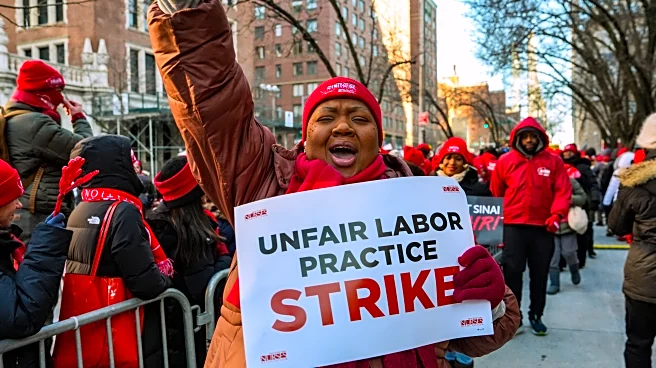What's Happening?
Rosen Law Firm, a global investor rights law firm, has announced a class action lawsuit on behalf of investors who purchased common stock of James Hardie Industries plc between May 20, 2025, and August 18, 2025. The firm is urging these investors to secure
legal counsel before the lead plaintiff deadline on December 23, 2025. The lawsuit alleges that James Hardie Industries misled investors about the strength of its North America Fiber Cement segment, falsely claiming that demand remained strong and stock levels were normal, despite knowing that distributors were destocking inventory. This misinformation allegedly led to investor damages when the true details were revealed.
Why It's Important?
The class action lawsuit against James Hardie Industries highlights significant concerns about corporate transparency and investor protection. If successful, the lawsuit could result in substantial financial compensation for affected investors, emphasizing the importance of accurate corporate disclosures. This case also underscores the role of law firms like Rosen Law Firm in safeguarding investor rights and holding corporations accountable for misleading practices. The outcome of this lawsuit could influence corporate governance standards and investor relations practices, potentially leading to stricter regulations and oversight in the industry.
What's Next?
Investors who purchased James Hardie common stock during the specified period are encouraged to join the class action by contacting Rosen Law Firm. The firm is actively seeking a lead plaintiff to represent the class in directing the litigation. The deadline for moving the court to serve as lead plaintiff is December 23, 2025. As the case progresses, it may attract attention from regulatory bodies and industry stakeholders, potentially leading to broader discussions on corporate accountability and investor protection.
Beyond the Headlines
The lawsuit against James Hardie Industries could have long-term implications for corporate transparency and investor trust. It raises ethical questions about the responsibility of corporations to provide accurate information to shareholders and the consequences of failing to do so. This case may also prompt other companies to reassess their disclosure practices to avoid similar legal challenges, potentially leading to a shift in industry standards.
















